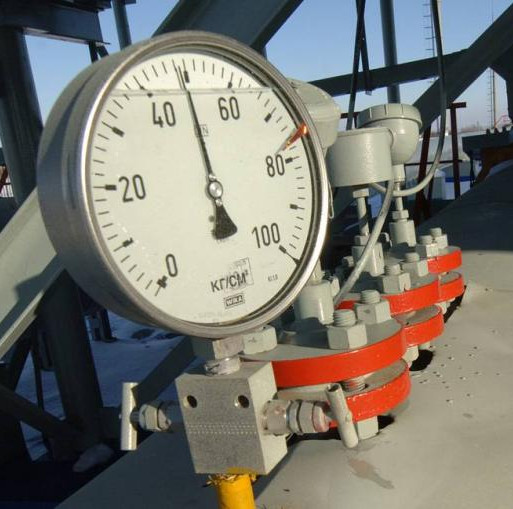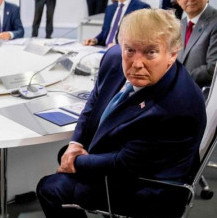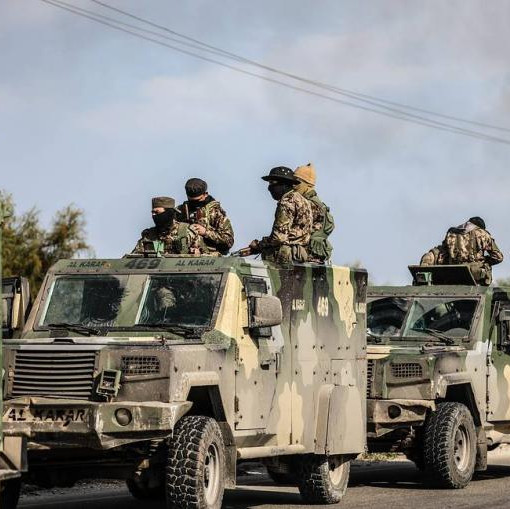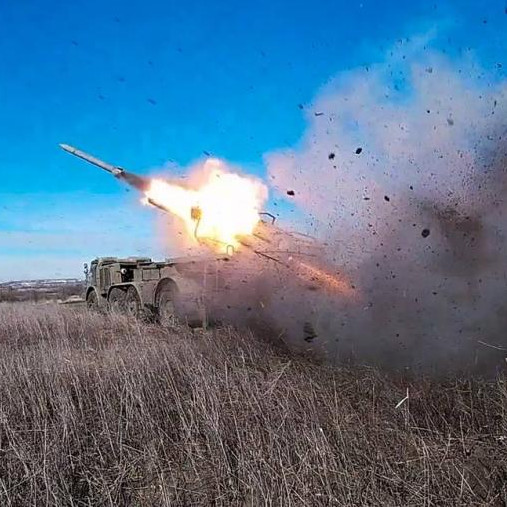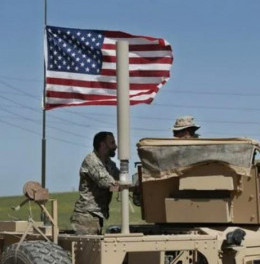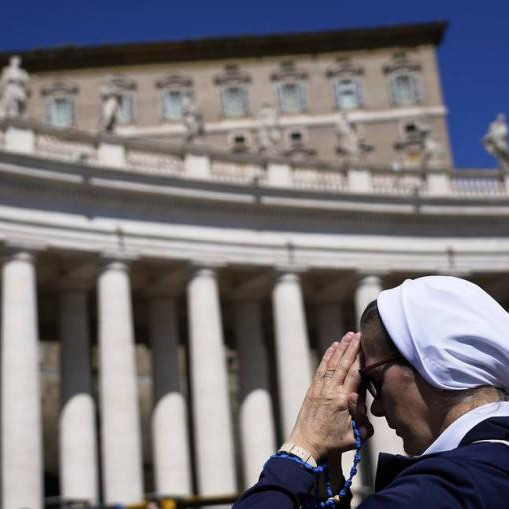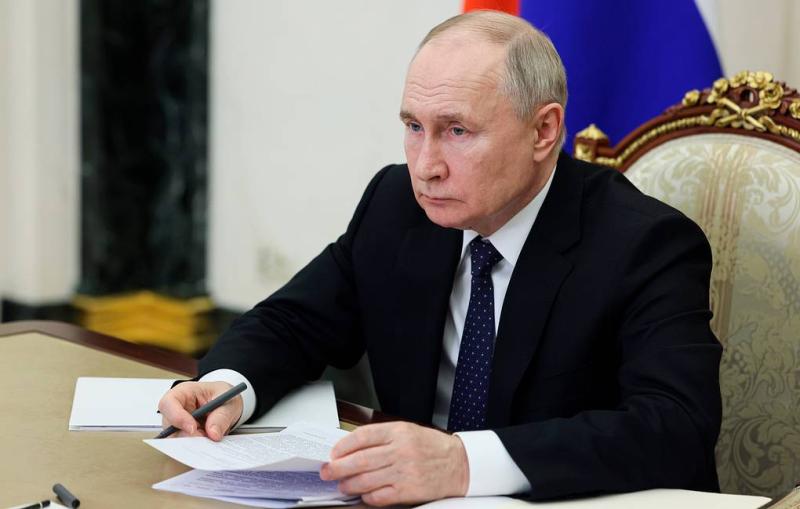
Russia has announced an Easter ceasefire, notable progress was reported in US-Iran talks on the nuclear deal, and Europe continues to refuse dialogue with Moscow. These stories topped the headlines in Monday’s newspapers across Russia, according to TASS news agency.
Vedomosti: How Easter truce may impact developments in Ukraine conflict
Russian President Vladimir Putin announced an Easter ceasefire on April 19 during a meeting with Chief of the General Staff of the Russian Armed Forces Valery Gerasimov. The Russian leader emphasized that the ceasefire would run from 6 p.m. on April 19 (3 p.m. GMT) to 12 a.m. on April 21, provided the Ukrainian side respects it as well.
However, this did not materialize. According to an official statement on the Russian Defense Ministry’s Telegram channel published on April 20, overnight, Ukrainian formations attempted several attacks on Russian positions in the Donetsk People’s Republic (DPR) which were repelled by Russian forces. Additionally, the Ukrainian side deployed 48 fixed-wing unmanned aerial vehicles (UAVs), including one in Crimea. Ukrainian units shelled Russian positions 444 times using artillery guns and mortars and carried out 900 drone strikes and airdrops of various ammunition, including on Russia’s border regions of Bryansk, Kursk, and Belgorod.
US President Donald Trump may view the very fact of the Easter ceasefire as his political asset and tout it as his own achievement, which may somewhat enhance his focus on Ukraine, said Pavel Koshkin, senior researcher at the Russian Academy of Sciences’ Institute for US and Canadian Studies. From Trump’s point of view, apparently, his administration’s threats to withdraw from the negotiation process were partially successful. But the expert emphasized that so far, there have been no clear reactions or commentaries from the White House, which is uncharacteristic. "Possibly, the US has temporarily adopted a wait-and-see approach in order to test how serious the parties to the conflict are," Koshkin said.
The Trump administration will perceive the Easter ceasefire positively and as Russia’s signal of intent for peace, but this absolutely does not mean that now a long-term ceasefire without any definite terms becomes possible, said Dmitry Suslov, Deputy Director of the Center for Comprehensive European and International Studies at the Higher School of Economics.
According to the expert, Vladimir Zelensky’s mixed reaction precisely indicates that Russia’s initiative may be positively perceived in Washington. "Zelensky’s first impulsive reaction evolved during a couple of hours. Apparently, he realized that an unequivocal refusal would be his political end, which may be followed by restrictions on the part of the US such as the suspension of military aid," Suslov said.
That said, the expert questioned the prospects of extending the truce. "Currently, there is an active discussion underway regarding the conditions of a long-term truce. A meeting in Paris has already been held, and during the week, there will be new talks in London between the Americans, Europeans, and Ukrainians, and Witkoff recently had an in-person meeting with Putin. All of this indicates that the sides realize the impossibility of a long-term truce without any conditions," the expert said.
He also emphasized that the situation with the Easter truce has most likely strengthened US Special Presidential Envoy Witkoff’s standing, but there has not yet been any fundamental change in the balance of forces between pro-Ukrainian and anti-Ukrainian groups in the White House.
Vedomosti: Iran, US report progress at nuclear deal talks
Iranian Foreign Minister Abbas Araghchi and US Special Presidential Envoy to the Middle East Steve Witkoff, during the second round of indirect negotiations on the Iranian nuclear program in Rome, agreed to begin discussing the structure and objectives of a potential deal in Muscat, Oman, on April 26, the top Iranian diplomat said on his X page on April 19. The sides also agreed to hold a meeting at an expert level in the Omani capital three days ahead of the talks to discuss the details of "the effective lifting of the sanctions" and "trust-building regarding the peaceful nature of Iran’s nuclear program," according to a statement on the Iranian Foreign Ministry website.
The framework of the previous agreement on the Iranian nuclear program concluded in 2015, from the Iranian perspective, cannot serve as the foundation for a new deal, but in many respects, the new agreement may align with the earlier pact, said Ilya Vaskin, junior research fellow at the Center for Middle East, Caucasus, and Central Asia Studies at the Higher School of Economics. Potentially, the deal will ensure Iran’s commitment to forgo developing nuclear arms, full access for the International Atomic Energy Agency’s (IAEA) employees to nuclear facilities, in exchange for the gradual easing of US sanctions and the continuation of a peaceful nuclear program, the expert believes.
He did not rule out Russia becoming involved in the prospective new nuclear agreement as either a mediator or a guarantor, as it was with the prior accord. However, Moscow’s involvement and scope will depend on the outcomes of negotiations between Washington and Tehran, the expert explained.
Differences within the US administration regarding solutions to the Iranian crisis have been overstated, believes Vladimir Vasilyev, senior research fellow at the Russian Academy of Sciences’ Institute for US and Canadian Studies. According to him, the White House’s Middle Eastern strategy is not divided into competing visions; however, the expert does not exclude the possibility that US National Security Advisor Mike Waltz and Secretary of State Marco Rubio may advocate for Israel’s interests.
According to Vasilyev, at present, Trump is seeking to avoid a new conflict in the Middle East. Primarily, not only would such an escalation undermine regional stability and security, but it could also push up energy prices, thereby creating additional challenges for the US economy, especially amid the ongoing US trade tensions with China. Secondly, the expert added, the current administration is aiming to streamline defense spending and restructure the military leadership, which contradicts the notion of the US preparing for war.
The expert noted that, on the other hand, Trump’s return to the White House has created an atmosphere of volatility in US politics: the foreign policy decision-making process has been disrupted and now hinges primarily on the president himself.
Izvestia: EU refuses to resume dialogue with Russia
The European Union does not plan to reestablish political interaction with Russia, the European Commission told Izvestia. In fact, Moscow does not see the need to "insist on dialogue now," the Russian Foreign Ministry said. It confirmed that Russia had received no indications from the EU. However, Brussels’ position significantly obstructs the resolution of the Ukraine conflict.
If, following Donald Trump’s return to the White House, Washington opted for dialogue with Moscow, not only did the EU reject it, but it is essentially sabotaging Russia-US efforts to reach a peace agreement.
"The phrasing that they are against dialogue and ending the conflict is unacceptable in the European discourse. However, Europe is adhering to the positions established three years ago - about ‘historic justice,’ ‘Ukraine’s territorial integrity,’ ‘preventing a Russian victory because it fosters aggression.’ The US, under the Trump administration, is gradually distancing itself from these original principles, once also supported by Washington, based on the current geopolitical reality," Andrey Kortunov, an expert with the Valdai Discussion Club, told Izvestia.
Moreover, after Trump’s return to the White House, the EU has intensified its efforts on the military front. France, the EU’s key player, along with the UK and several other countries, continues to advocate for the idea of deploying troops to Ukraine, calling it a peacekeeping mission, even though Russia has repeatedly warned that the arrival of Western contingents would represent a serious escalation and is unacceptable to Moscow. Additionally, the EU will expand its military aid to Ukraine this year.
Thus, the EU intends to prolong the conflict, even though, as the expert noted, without "the US support they can do little on their own."
Media: Russia’s Economy Ministry lowers forecast for Urals oil brand to $56 per barrel
The Russian Economy Ministry has significantly downgraded expectations for Urals oil prices, lowering them to an average of $56 per barrel in 2025, the ministry’s macroeconomic forecast (shared with Izvestia) states. This is linked to escalating trade wars and the projected deceleration of global GDP, experts explained. That said, the ministry’s outlook on the average dollar exchange rate has remained largely unchanged, despite the ruble’s notable strengthening by April - this year, the US currency is expected to average 94 rubles per dollar. Inflation will reach 7.6%, while the economy is projected to expand by 2.5%, the ministry predicted.
"For the budget, a declining Urals price is never good news because the government’s revenues are directly tied to oil price trends. If the cost of energy resources falls below $60 per barrel, the financial plan may miss out on a significant portion of oil and gas income," leading analyst of Freedom Finance Global Natalya Milchakova told Izvestia.
According to a representative of the Economy Ministry, the 2025 ruble rate projection is plausible, but the ministry acknowledges that volatility may be considerable.
The average annual rate will be influenced by numerous factors that remain unresolved, including geopolitical developments related to trade disputes and negotiations between Russia and the US, as well as the potential easing of sanctions against Russia, Yulia Kovalenko of the Plekhanov Russian University of Economics told Izvestia. In various months, the dollar may fall below 80 rubles or rise above 94.
The expected economic growth is considerably slower than the pace seen at the end of 2024, when GDP rose by 4.3%. The slowdown is due to a high key interest rate and elevated borrowing costs - loans have become less attainable, particularly for small businesses, Milchakova noted. Furthermore, she said, a decline in hydrocarbon output, especially oil under the OPEC+ agreement, will contribute to the broader economic deceleration.
The revised GDP growth forecast for the current year can be viewed as fairly reasonable, said Daniil Nametkin, Head of the Center for Investment Analysis and Macroeconomic Research at the Center for Strategic Research, in comments to Vedomosti.
Despite the ongoing tight credit and monetary conditions, their effects have been partially offset by government support programs in key sectors of the economy. According to Nametkin, emerging signs of stabilizing inflation and a moderate drop in consumer demand suggest the Bank of Russia may gradually ease its policy stance.
Kommersant: Foreign banks eye opportunities in Russian market
US-Russia talks on restoring peace in Ukraine influence the strategic approach of foreign banks operating in Russia. Financial institutions from "unfriendly" countries are now willing to pause winding down the profitable operations of their subsidiaries in Russia — especially as banks from jurisdictions aligned with Russia have been expanding their footprint in the country and competition is intensifying.
According to independent expert Yury Koptelov, "the list of services has changed in direct correlation with the origin of the bank in question." The current relationships between countries — the so-called friendly or unfriendly status — play a significant role in how foreign banks operate, Roman Prokhorov of the Russian Chamber of Commerce and Industry agreed.
Experts say Chinese banks are currently the most active in Russia, given that Russia and China share the largest volume of business. Arkady Svistunov, deputy chairman of the Russian State Duma committee on the financial market, noted that "other banks, such as those from Iran or Arab nations, conduct far smaller volumes of business and their activities are therefore more limited." He added that banks from Belarus, Kyrgyzstan, Uzbekistan, Azerbaijan, and Armenia are also highly active, offering a broad array of services in Russia.
Looking ahead, the potential for foreign bank branches to open in Russia depends on the establishment of clear regulations and conditions, Svistunov added.
TASS is not responsible for the material quoted in these press reviews
